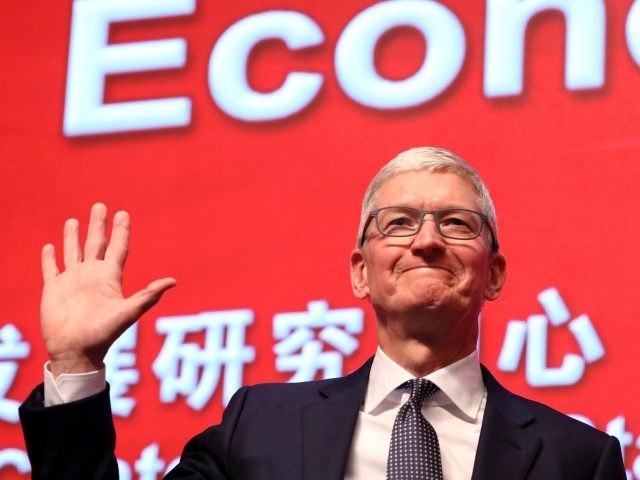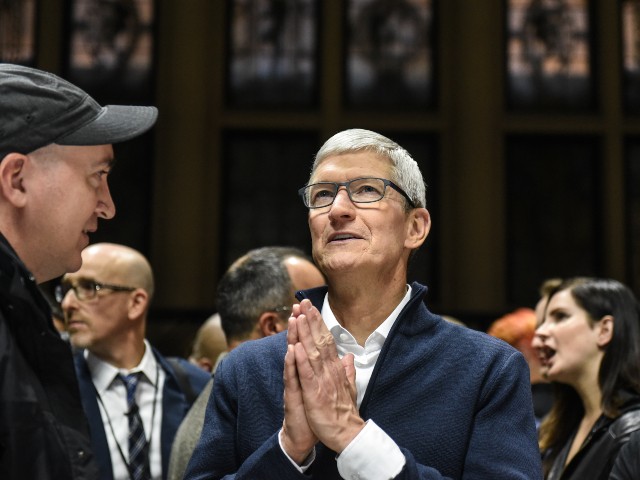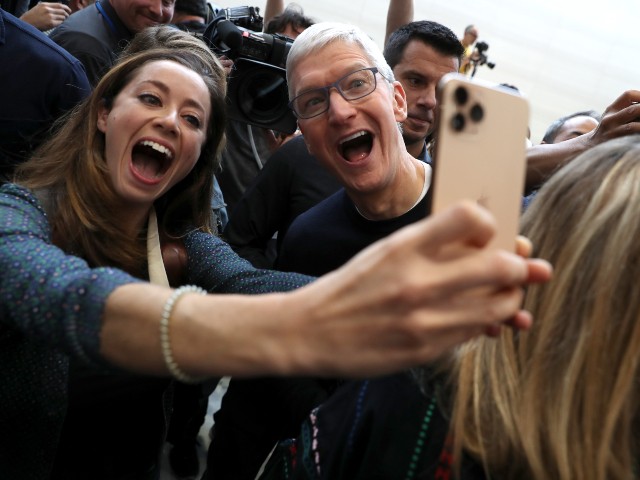Apple CEO Tim Cook (also known as Tim Apple) received widespread criticism on social media recently after he argued that current antitrust efforts against Big Tech are bad for national security and user privacy.
Despite the company’s carefully cultivated image as a tech company whose business model doesn’t rely on collecting user data, the smartphone giant’s reputation for protecting user privacy has been undermined due to recent scandals.
Recently, Apple agreed to a $14.8 million settlement over a suit that accused the Big Tech giant of breach of contract for storing users’ iCloud data on third-party servers.
As reported by Macworld:
Each person in the class will “receive a pro rata distribution of the Settlement based on the overall payments made by each Class Member for his or her iCloud subscription during the Class Period,” so it depends on how much you spent during the period. Apple’s monthly iCloud rates at the time were $0.99 (50GB), $3.99 (200GB), and $9.99 (1TB).
This suit comes on the heels of other recent lawsuits filed against Apple, Facebook, and Google over privacy concerns, including one which alleges that Apple, through Siri, recorded its users’ private conversations without their consent and then sold said information to advertisers.
According to Reuters:
One Siri user said his private discussions with his doctor about a “brand name surgical treatment” caused him to receive targeted ads for that treatment, while two others said their discussions about Air Jordan sneakers, Pit Viper sunglasses and “Olive Garden” caused them to receive ads for those products.
Despite Apple’s dubious track record of respecting its users’ privacy, the Big Tech giant recently launched Private Relay and Hide My E-mail, features which will allow users to stop websites and businesses from using their information for ad tracking purposes on Safari.
Apple claims that it released these features to protect user privacy. Critics, however, have showcased how these Apple efforts would curiously appear to ensure that only Apple has access to this user data moving forward — meaning that Private Relay and Hide My E-mail could give Apple unprecedented market share in the advertising marketplace, creating many of the same concerns that regulators have over Facebook and Google’s advertising marketplaces.
As reported by The Information:
AllianceBernstein analysts say Apple’s privacy changes and its role as an App Store gatekeeper give its ad network an advantage over rivals. They estimate Apple’s ad business generated about $4 billion in revenue last year, up from $300 million in 2017, a healthy 1300% increase in just five years
Analysts expect Apple to expand its ad business to include selling ads in non-Apple apps, which it tried to do years ago. That effort failed in part because it restricted how those apps could share user data with advertisers. By reviving that type of business, Apple could eventually generate at least another $10 billion in new revenue, the AllianceBernstein analysts estimate.
These critics of Private Relay and Hide My E-mail fear that these initiatives could potentially expand the tech giant’s fortunes beyond the digital advertising space. Publishers, for example, are concerned that Apple will move to block ad-sponsored services’ insights into additional user data, such as IP address, across all Apple platforms.
In addition to advantaging Apple’s advertising business, they say that such a move would undercut their ability to effectively monetize their products — forcing popular free services like streaming and podcasts to move away from the ad-supported model and towards Apple’s subscription platform.
While forcing ad-supported platforms behind the Apple paywall might be as financially beneficial to the Cupertino company as its rapid expansion into digital advertising, many are alarmed that Apple potentially forcing entire platforms into subscription models will also pose massive consumer and societal issues — adding direct costs to consumers and making Apple the effective gatekeeper for digital content.
The Department of Justice is currently weighing antitrust action against Apple and Google over monopolistic concerns. It is unclear whether Apple’s advertising practices generally or Private Relay and Hide My E-mail specifically are currently a part of the department’s investigation.
Allum Bokhari is the senior technology correspondent at Breitbart News. He is the author of #DELETED: Big Tech’s Battle to Erase the Trump Movement and Steal The Election.



COMMENTS
Please let us know if you're having issues with commenting.